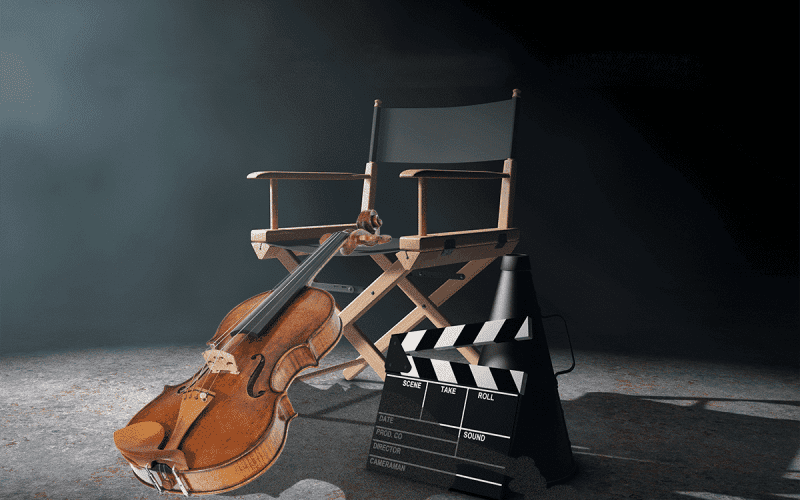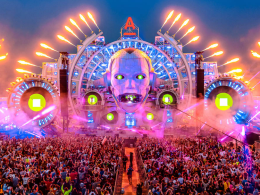Introduction
Music has long been an integral component of human culture, serving as a powerful medium for expression and communication. In the realm of film and television, music plays a crucial role in shaping the audience’s experience, enhancing the emotional depth, and creating memorable moments that resonate long after the credits roll. This article delves into the multifaceted role of music in enhancing film and TV experiences, exploring its impact on storytelling, character development, atmosphere, and viewer engagement.
The Historical Context of Music in Film and TV
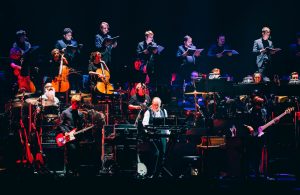
-
Early Beginnings
The use of music in film dates back to the silent film era, where live orchestras or pianists would accompany screenings to provide emotional cues and enhance the narrative. As technology advanced, synchronized soundtracks became possible, leading to the creation of iconic scores that have become synonymous with the films they accompany.
-
The Golden Age of Hollywood
The Golden Age of Hollywood saw the rise of legendary composers such as Max Steiner, Bernard Herrmann, and Alfred Newman, who crafted scores that elevated the cinematic experience. Their work demonstrated the power of music to evoke emotions, build tension, and create a sense of continuity within a film.
-
Modern Innovations
In contemporary cinema and television, music continues to play a vital role, with composers like Hans Zimmer, John Williams, and Ramin Djawadi pushing the boundaries of what is possible. The advent of digital technology has also allowed for more experimental and diverse musical approaches, enriching the audiovisual landscape.
The Impact of Music on Storytelling
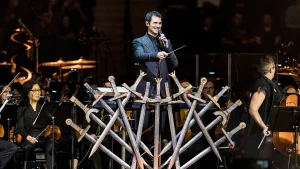
-
Setting the Tone
Music is instrumental in setting the tone of a film or TV show. Whether it’s the eerie strings of a horror film, the triumphant brass of an action movie, or the melancholic piano of a drama, the score immediately establishes the emotional landscape and prepares the audience for the journey ahead.
-
Enhancing Emotional Resonance
One of the most powerful functions of music in film and TV is its ability to amplify emotions. A well-crafted score can heighten the sense of joy, sorrow, fear, or excitement, making scenes more impactful and memorable. For example, the swelling strings in a romantic scene can evoke a sense of longing and passion, while a suspenseful score can keep viewers on the edge of their seats.
-
Guiding the Narrative
Music also serves as a narrative guide, helping to structure the story and signal transitions between scenes. Leitmotifs, recurring musical themes associated with specific characters or ideas, are a common technique used to reinforce narrative elements. John Williams’ use of leitmotifs in the “Star Wars” saga is a prime example, with themes like the “Imperial March” becoming iconic representations of characters and their arcs.
Character Development Through Music
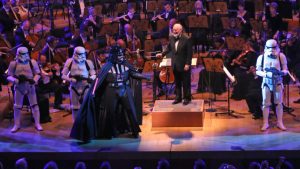
-
Defining Characters
Music can provide insight into a character’s personality, motivations, and emotional state. A character’s theme music can reveal their inner world and add layers to their portrayal. For instance, the haunting melody associated with Hannibal Lecter in “The Silence of the Lambs” underscores his sinister and enigmatic nature.
-
Reflecting Character Arcs
As characters evolve, their musical themes can change to reflect their growth and development. This dynamic use of music helps the audience track character arcs and enhances the storytelling. In “Game of Thrones,” Ramin Djawadi’s evolving themes for characters like Daenerys Targaryen mirror her transformation from a vulnerable exile to a powerful queen.
Creating Atmosphere and World-Building
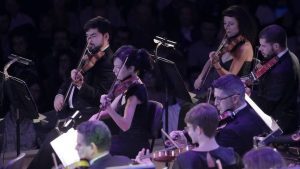
-
Establishing Setting
Music is a powerful tool for establishing the setting and immersing the audience in the world of the story. Whether it’s the exotic instrumentation of “Lawrence of Arabia” or the futuristic soundscapes of “Blade Runner,” music helps create a sense of place and time.
-
Enhancing Genre Conventions
Different genres have distinct musical conventions that help define their identity. Horror films often use dissonant sounds and sudden musical stings to create tension, while comedies might employ light-hearted and whimsical tunes. By adhering to or subverting these conventions, filmmakers can play with audience expectations and create unique experiences.
Viewer Engagement and Memory

-
Creating Iconic Moments
Some of the most iconic moments in film and TV history are inextricably linked to their musical scores. The opening notes of “Jaws,” the triumphant fanfare of “Indiana Jones,” and the haunting theme of “Twin Peaks” are all examples of music that has become an integral part of the cultural zeitgeist. These moments demonstrate the lasting impact that music can have on the audience’s memory and engagement.
-
Building Anticipation and Release
Music can build anticipation and provide a sense of release, guiding the audience through the emotional peaks and valleys of a story. The use of a crescendo leading up to a climactic moment, followed by a sudden silence or a gentle resolution, can create a powerful emotional payoff.
Conclusion
The role of music in enhancing film and TV experiences cannot be overstated. From setting the tone and guiding the narrative to defining characters and creating memorable moments, music is an essential element that enriches the audiovisual storytelling medium. As technology and creative approaches continue to evolve, the potential for music to shape and elevate the audience’s experience remains boundless. Whether it’s a sweeping orchestral score or a minimalist electronic composition, the power of music to move, inspire, and captivate will always be at the heart of film and television.






